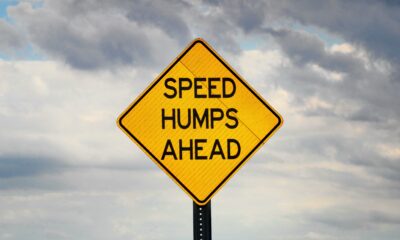411
At Nampo Fair, Afrikaner Farmers Speak Out Amid Controversy Over US Asylum Offer

South Africa’s top agricultural expo, the Nampo Harvest Day, became a flashpoint for debate as Afrikaner farmers responded to controversial remarks by former US President Donald Trump, who claimed that white South Africans face persecution. While some farmers echoed his views, others dismissed them as exaggerated.
Held in the Free State, the annual show featured everything from livestock to heavy-duty tractors and rows of pick-up trucks. It drew hundreds of farmers, many wearing their signature khaki shorts and caps, just days after 49 white Afrikaners arrived in the US claiming asylum.
[WATCH] An Afrikaner attendee at the NAMPO Harvest Day in Bothaville, Free State, tells Newzroom Afrika’s @ZinikokaMhlaba that they have no intentions of moving to the United States. He adds that there is no genocide in South Africa, it is probably at a small scale if there’s… pic.twitter.com/xmOq7KT8Kq
— Newzroom Afrika (@Newzroom405) May 15, 2025
Maize farmer John Potgieter insisted white farmers are under attack in South Africa, calling the situation a “genocide,” despite acknowledging that it differs significantly from historical mass atrocities. “Obviously, genocide is a broad word. It is not a mass genocide like the Holocaust,” he said, standing beside a monument listing the names of farmers killed since the 1960s.
?Deputy President Paul Mashatile arrives at the NAMPO Harvest Day agricultural show taking place in Bothaville, Free State Province from 13-16 May 2025.
The Deputy President is received by the Minister of Public Works and Infrastructure, Mr Dean McPherson and Grain SA CEO, Mr… pic.twitter.com/hbRh5P0DO4
— South African Government (@GovernmentZA) May 15, 2025
Safety Concerns Stir Debate
Farm attacks are a recurring concern in rural South Africa, but the context is far more complex. The country averages around 75 murders a day, with most victims being young black men in urban areas. Experts estimate around 50 farmers of all races are murdered annually.
Sheep and goat farmer Eduard van der Westhuizen pushed back against the idea that white farmers are being targeted. “There are problems, murders sometimes, but it is not targeted,” he said. “It is much safer on a farm than in a town.”
Despite the challenges, he declared his loyalty to the country: “I won’t go anywhere else, this is my country, I love it.”
Deputy President @PMashatile arrives at #NAMPODay2025 agricultural gathering and is received by the Minister of Public Works and Infrastructure, Mr @DeanMacpherson and Grain SA CEO, Mr Tobias Doyoer, ahead of his briefing and interaction with the agricultural sector. pic.twitter.com/RVB6nUly22
— The Presidency ?? (@PresidencyZA) May 15, 2025
Ramaphosa and Lamola Reject Persecution Claims
South Africa’s government responded strongly after 49 white Afrikaners accepted asylum in the US. Foreign Minister Ronald Lamola called the claims of persecution baseless: “They can’t provide any proof of any persecution because there is not any form of persecution to white South Africans or to Afrikaners.”
President Cyril Ramaphosa, who is due to meet Trump in Washington, dismissed the genocide claims as politically driven. “There is no genocide here. We are beautiful, happy people, black and white working and living together,” he said.
A Divided Community at a Show of Strength
Nampo 2025, hosted in South Africa’s key grain belt, attracted over 900 exhibitors, including gun dealers. Willem Jordaan from Dave Sheer Guns noted that gun sales were rising in areas affected by farm attacks. “It’s important to have a means of self-defence,” he said.
Still, not all attendees supported Trump’s stance. A farm equipment dealer labeled the US resettlement offer a “farce.”
For 18-year-old Danny Snyman, the attention from Trump at least brought awareness. Though he had never heard of a murder firsthand, he admitted there had been “lots of stealing.” Curious about life abroad, he said, “I would definitely go overseas, maybe to tour… but yeah, I’d probably come back.”
Tensions Remain Over Land and History
Land remains a deeply divisive issue in post-apartheid South Africa. Although white people make up only about 8% of the population, they still own over 75% of farmland. This legacy ties back to the apartheid regime, where white-led governments institutionalised racial inequality until democracy was achieved in 1994.
As South Africa balances its history with a push for unity, moments like Nampo reflect the complexity of the debate—where identity, security, and politics all converge.
Follow Joburg ETC on Facebook, Twitter , TikTok and Instagram
For more News in Johannesburg, visit joburgetc.com
Sourced:African Insider
Picture: 123RF/KOSTIC DUSAN



























